Beyond the Spectrum: Autism, Exercise and the Miracle of Chris Fitzmaurice
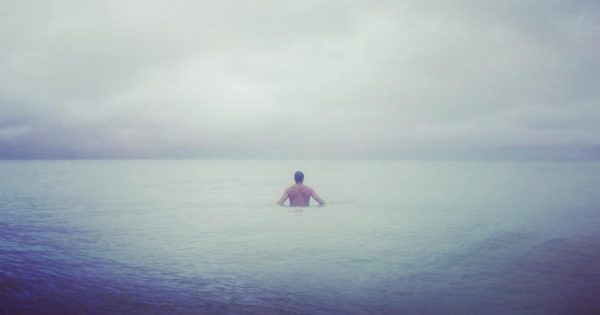
The prostate cancer had returned when John McGuire met Chris Fitzmaurice ’09, ’12 M.S. It’s a stubborn disease that can hide away for years, then come back when you thought you had it beat. After hurting his shoulder in an accident caused by muscle weakness that’s a symptom of John’s 24-month oral chemotherapy plan, his doctor recommended exercise to rehabilitate, and sent him to Chris.
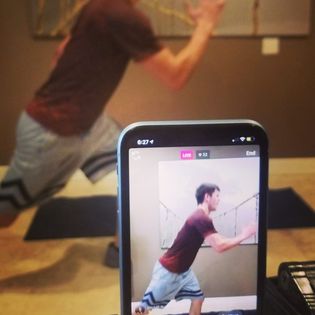
“You can’t go through one of his classes and not feel better physically … and there’s the hard to define psychological side. He’s a very friendly, positive-minded person,” John said.
Chris is an exercise physiologist at the Sylvester Comprehensive Cancer Center in Miami who hosts group and individual workout instruction as part of his job. Soon after the pandemic upended lives, he added free classes on his own time to help people keep moving. With the diagnoses they’re facing, it can be hard for his clients to find the strength to get out of bed. But Chris knows from experience where pushing yourself can take you.
Lifting Up
“I’m going to flunk,” he thought to himself as senior exams loomed. Had he really come this far, taken the SAT that many times to be stopped at the doorstep of graduating from college?
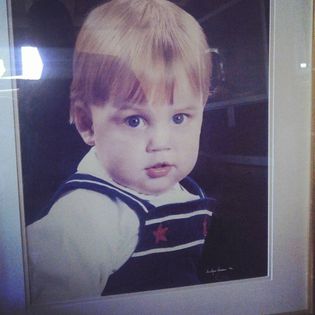
Chris had felt the weight of a moment like it before more than once. As a five year old, three years after doctors told his parents he was on the Autism spectrum, he suddenly lost feeling in one side of his body, crashed down a flight of stairs and hit his head. The loss of feeling he experienced was caused by encephalomyelitis — swelling of the brain and spinal cord. Doctors thought Chris might not ever walk normally again after the accident. The toddler started intense physical therapy right away.
“About two months in I got a frantic call from the physical therapist, but it wasn’t anything negative. She was absolutely shocked by his improvement,” said Chris’s father, Mike Fitzmaurice. Six months later he was walking again.
Autism is a complex neurological and developmental disorder that affects how a person communicates and interacts with others. Difficulties with social skills and the injury made life hard during Chris’s childhood and adolescence. He couldn’t form full sentences until he was 12.
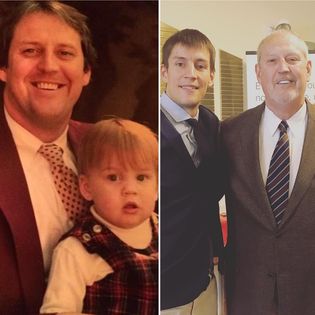
“At that age it was really tough for me to fit in. Some people made fun of me or didn’t really want to associate with me,” he said. Chris invited his entire school to his birthday party when he turned nine. The hours passed. Not a single person arrived.
“It was like someone had stuck a sword in my heart,” his dad said.
As Chris rediscovered the freedom that comes with movement and searched for ways to express himself, he gravitated to sports and spent hours shooting hoops in his neighborhood.
“I love basketball to death, but I had a hard time functioning with the high level of skills involved with it. And as it got more competitive, it became more challenging,” Chris said. He gave soccer and football a try. They didn’t click either. But when his dad brought him to the weight room one day in middle school, it was “like the elixir of life.”
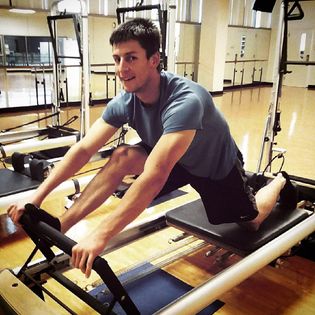
When he felt the strain of heavy weights against his arms or rose above a pull-up bar, Chris was in control. Over months of the daily workout routine he cherished, he grew physically stronger. The mental benefits meant more.
“It helped me connect with people better. It made me feel like I mattered. Like that I was doing something that’s great, like I was achieving something,” he explains. While making new friends, many who approached him to ask for tips in the weightroom, Chris set about applying his focus to a growing ambition: attending college. If he could only get his test scores up, there could be a future turning exercise into a career to change lives like his had been changed. It wasn’t until his seventh try on the SAT that there was cause for celebration.
New Paths
The first of his siblings to go to college, Chris settled into a familiar rhythm at his new home at UNC Charlotte, spending every spare moment at the gym and making connections with classmates in the close-knit exercise science program.
“We wanted everybody to succeed. Everybody was being tested to their max, but we were very passionate about making an impact in the community soon,” he said.
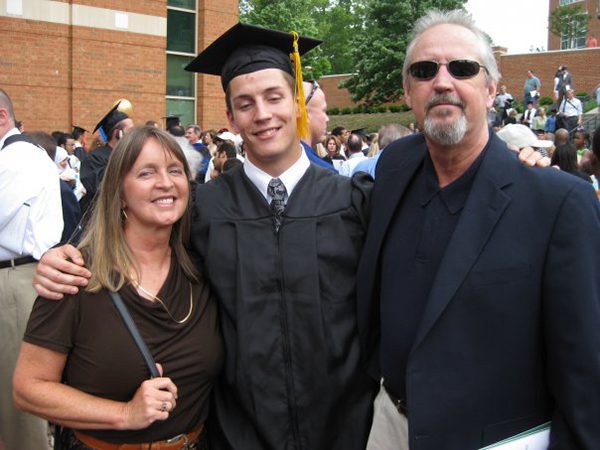
Peers and mentors supported Chris as he faced the daunting senior year exams he thought he might fail. On this round of tests, he would pass on the first try.
“He was the first student to say good morning each day and always had the most positive attitude both in and outside the classroom. He worked extremely hard on his assignments, demonstrated a true passion for the field and it was clear he had a genuine love for learning,” recalled Tracy Bonoffski, a lecturer in the exercise science program.
Five years and several upward career moves later, armed with not only a bachelor’s degree from Charlotte, but a master’s in clinical exercise physiology, he was hired at the University of Miami’s nationally-renowned Sylvester Comprehensive Cancer Center.
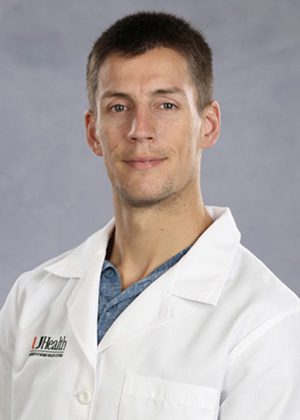
Like many, the Fitzmaurices have lost family members to cancer. Chris has seen its devastating effects.
“For some of the people I work with, it’s like the gift of exercise or movement has reinvigorated their entire life. They feel saved. I live for that, and it’s what keeps me going and getting better and better,” he said.
The drive to help extends to everyone in Chris’s orbit. Not long ago, a co-worker came to him with the goal of losing 80 pounds to help her become more mobile.
“I’ve been working with her for about five months now. She’s lost 40 pounds so far and has 40 to go, and says her quality of life is at an all-time high.” Progress made doesn’t mean it’s time to stop going.
Chris’s father once saw a doctor who knew of his son’s challenges as a child, when he wouldn’t make eye contact, even with his parents, and scraped his teeth along the crib at night. The doctor had heard about what Chris is doing now.
“He brought me over to his desk, took a hold of my hands said, ‘Do you know you have a miracle that’s happened here?’” Mike remembers.
When Chris called John McGuire, the prostate cancer patient and client-turned-friend he’d made through his online exercise classes, he was nervous. Asking for money was something new. But the 100-mile charity bike ride through sweltering south Florida he was about to undertake was part of the Miami Dolphins’ multi-million dollar effort to support cancer research. Surely it would be an easy conversation.
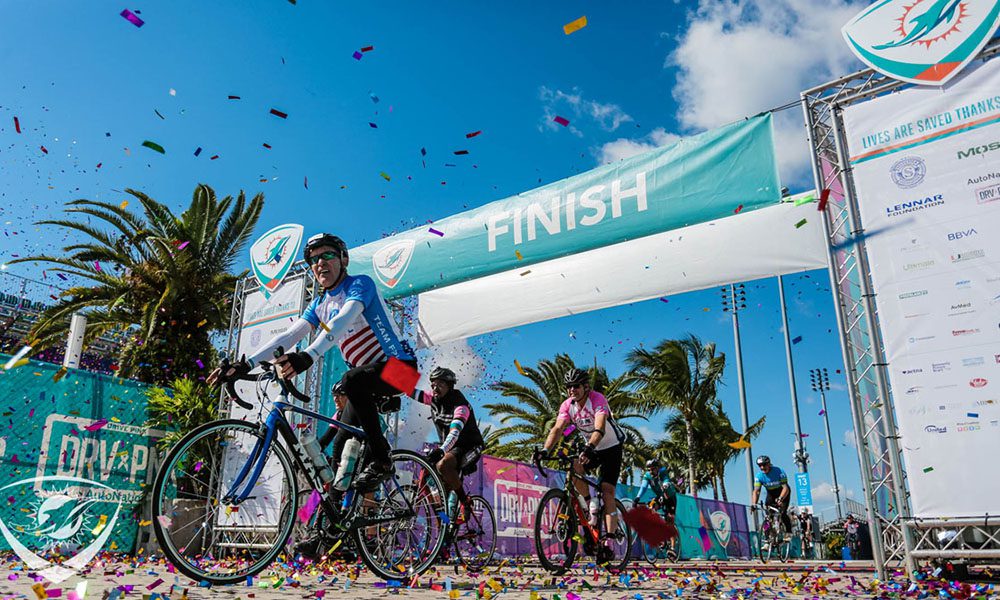
“What are you trying to do? Shake me down for some cash?” John, a retired bank executive, chided Chris playfully when he made his request.
“That really flustered him,” John laughs. Together, through John’s connections to local fundraising and the response of people who believe him when Chris Fitzmaurice calls and says it’s important, a $1,000 goal became $11,550 in contributions from 140 donors for the Dolphins Cancer Challenge.
Chris hadn’t biked anywhere near that far when he took off on mile one of 100 from Miami. But he put the kickstand up, raised his head and started pedaling.
Chris Fitzmaurice is pursuing a second master’s degree in prevention science and community health at the University of Miami.